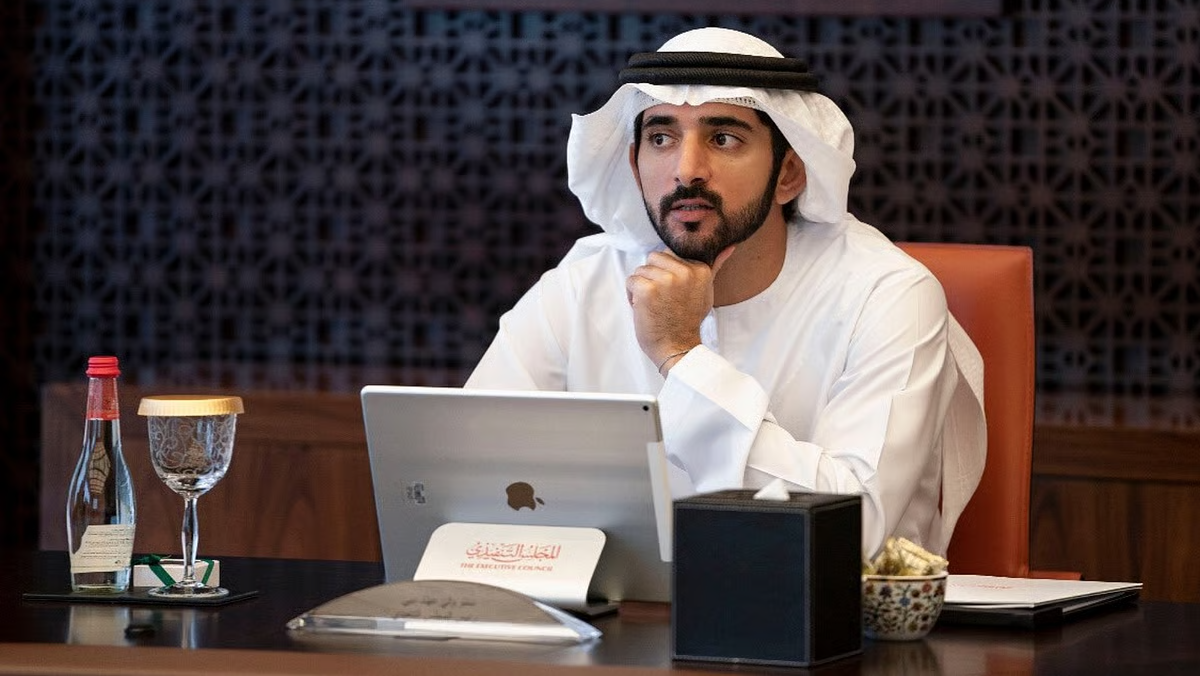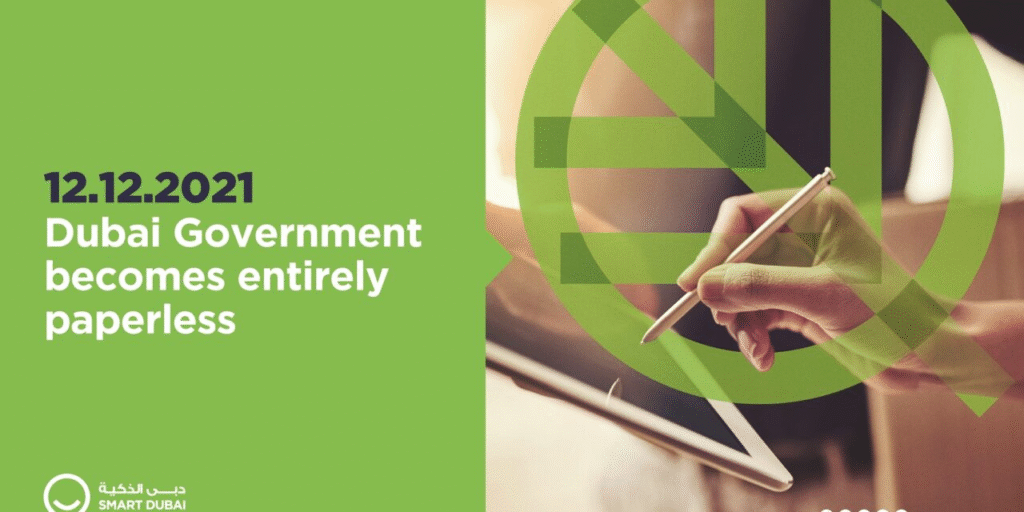Now Reading: Paperless Government Dubai: 2025’s Most Successful Digital Revolution
-
01
Paperless Government Dubai: 2025’s Most Successful Digital Revolution
Paperless Government Dubai: 2025’s Most Successful Digital Revolution

Table of Contents
In a groundbreaking move that has captured global attention, Dubai has officially become the world’s first government to operate completely without paper. This historic achievement marks a major milestone in the emirate’s digital transformation journey, positioning Dubai as a global leader in smart governance and innovation.
The announcement came after all 45 government entities in Dubai successfully stopped using paper in internal operations, services, and communications. The transformation was led by the Dubai Digital Authority and aligns with the Dubai Paperless Strategy, launched in 2018 by His Highness Sheikh Hamdan bin Mohammed bin Rashid Al Maktoum, Crown Prince of Dubai.
This strategic initiative aimed to completely eliminate paper use in government by the end of 2021, and not only was this target met, but the impact of the move is already being seen in cost savings, efficiency, and sustainability.
What Does a Paperless Government Mean?
A paperless government means that all operations and services are conducted digitally. In Dubai, this transition was not just about replacing paper with computers, but about rethinking the way government services work. From issuing licenses and processing visas to handling internal reports and communication, everything now happens through digital platforms.
Residents, businesses, and government employees now interact through smart apps, portals, and cloud-based systems. There’s no need for printing, submitting, or storing physical documents.
For example, residents can now pay utility bills, renew vehicle registrations, apply for permits, and complete dozens of other services from their smartphones. Behind the scenes, departments share and process documents instantly, reducing processing times and errors.
Massive Impact: Environment, Cost, and Time Savings

According to data released by the government, the paperless initiative has already saved over 336 million papers, which would have otherwise been printed annually. This also translates to saving over 1.3 billion dirhams (approx. $354 million) and over 14 million man-hours.
The environmental benefits are just as impressive. Dubai’s paperless transformation has contributed to preserving over 130,000 trees annually and reducing carbon emissions caused by paper production and transportation.
These savings are not just numbers. For the average resident, this means faster services, fewer visits to government offices, and a smoother, more transparent experience with authorities.
How Dubai Achieved the Paperless Vision
The Dubai Paperless Strategy was implemented in five phases. In each phase, several government departments were onboarded, ensuring that the transition was smooth and well-planned. The last phase was completed in December 2021, with all departments fully integrated into the digital ecosystem.
Key components of the transformation included:
- Digital Infrastructure: Dubai invested heavily in advanced IT systems, cybersecurity, and cloud services to support 24/7 government operations.
- Unified Platforms: Platforms like DubaiNow and UAE Pass have centralized hundreds of services, allowing users to access all they need from one place.
- Training and Support: Thousands of employees were trained to adapt to the new systems and work efficiently in a digital-first environment.
- Cybersecurity and Data Privacy: Ensuring data security was a top priority. The government has introduced strong privacy laws and security protocols to protect users.
Public Reaction and Global Recognition
The people of Dubai have widely welcomed the initiative. Digital services are now faster and more convenient than ever. Businesses also benefit from reduced paperwork and faster processing times.
International organizations, including the United Nations and World Economic Forum, have recognized Dubai’s efforts as a model for future governments. Cities around the world are studying Dubai’s strategy to replicate similar transformations.
Beyond Paperless: The Road Ahead

Dubai’s achievement is only the beginning. The government is now working on implementing advanced technologies such as artificial intelligence (AI), blockchain, and the Internet of Things (IoT) to make governance even smarter.
Sheikh Hamdan recently said, “Our digital transformation journey is an ongoing one. We are now moving towards a new phase where we aim to become not just paperless, but 100% digital and proactive in every service.”
One of the next steps includes predictive services, where government systems will anticipate a citizen’s needs before they even request a service. For example, if a resident’s ID is about to expire, the system will notify and renew it automatically, without the need for application.
A Model for Smart Cities
Dubai’s paperless journey fits into its larger vision of becoming the smartest and happiest city in the world. The move supports the UAE Centennial 2071 plan, aiming to make the UAE one of the best countries globally.
Experts believe that digital governance is no longer an option but a necessity. With Dubai’s successful model, other cities and countries are now encouraged to fast-track their digital strategies.
Final Thoughts
Dubai’s complete shift to a paperless government is more than just a technological upgrade. It reflects the leadership’s long-term vision for a smarter, more efficient, and more sustainable city. It proves that with proper planning, investment, and leadership, even the most traditional systems can evolve.
As the world watches this bold transformation, Dubai has once again shown that it is not afraid to lead the future not just in infrastructure or tourism, but in how a modern city should be governed.
Read More:- Shobha Realty Launches Its Most Luxurious Project Yet—Full Details Inside 2025






















